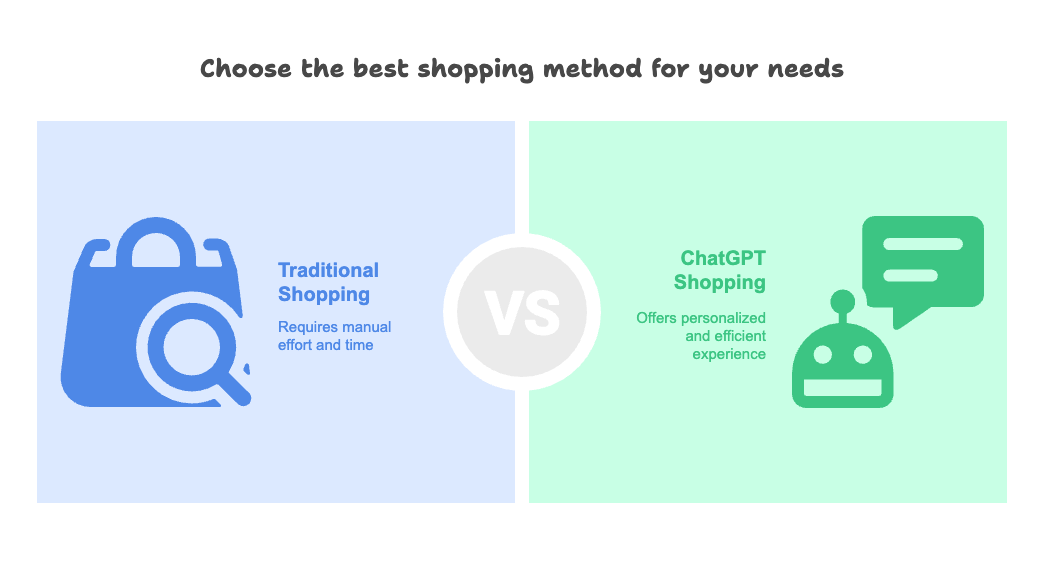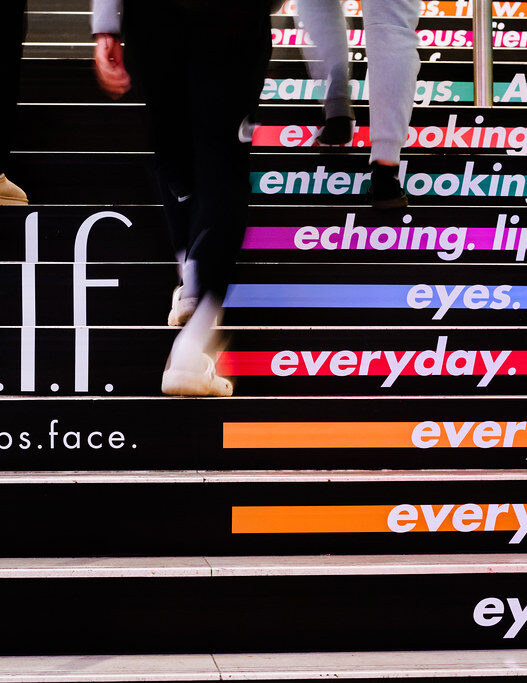Imagine effortlessly finding the perfect gift, comparing prices from multiple stores, and getting personalized style advice – all within a single conversation. That’s the promise of ChatGPT’s new shopping feature, and it’s rapidly changing how we approach online shopping. AI-powered shopping is no longer a futuristic fantasy; it’s a present-day reality, offering consumers a convenient and intuitive way to make purchases.
Online Shopping Simplified: How ChatGPT is Changing the Game
For many, online shopping can feel like navigating a maze. Endless scrolling, confusing product descriptions, and the sheer volume of choices can lead to decision fatigue. But ChatGPT is stepping in to make easy online shopping a true possibility.
Instead of bouncing between multiple websites and search engines, you can simply ask ChatGPT to find what you need. Want a waterproof backpack with a laptop compartment and a built-in USB charger, under $75? Just ask. ChatGPT can then filter through countless options, pulling relevant information from various retailers and presenting it in an easy-to-digest format. It takes the frustration out of finding the right product.

Early adoption rates have been promising. A recent survey indicated that 68% of users who’ve tried the ChatGPT shopping feature reported a more efficient shopping experience compared to traditional methods. The ability to consolidate information and receive tailored recommendations is resonating with consumers who value their time.
Quick and Easy Online Shopping: ChatGPT’s Innovative Features

What exactly makes ChatGPT’s shopping integration so special? Several key features contribute to its appeal:
- Real-time product search and comparison: ChatGPT can access up-to-date information on product availability, pricing, and specifications across various online stores. No more manually checking multiple websites.
- Personalized recommendations: Based on your past purchases, browsing history (if you’ve opted in to sharing this data), and stated preferences, ChatGPT can suggest products you might be interested in.
- Conversational shopping assistant: Ask questions, refine your search criteria, and get clarifications – all within a natural conversation. This is much more intuitive than using rigid search filters.
- Direct purchase links: Once you’ve found the perfect item, ChatGPT provides direct links to the retailer’s website, making the checkout process seamless.
Technical Integration Explained: The magic behind ChatGPT’s shopping prowess lies in its integration with retailer APIs (Application Programming Interfaces). These APIs allow ChatGPT to securely access product catalogs, pricing data, inventory levels, and customer reviews directly from the retailer’s systems. OpenAI partners with various e-commerce platforms, enabling ChatGPT to tap into their databases. For instance, if you ask ChatGPT to find a specific Nike shoe, it connects to Nike’s API, extracts the relevant information, and presents it to you. This integration is continuously expanding to include more retailers and product categories.
Benefits of ChatGPT Shopping: Streamlining the Customer Experience
The advantages of using ChatGPT for shopping extend beyond mere convenience.
- Time savings: Finding the right product becomes significantly faster, freeing up your time for other activities.
- Reduced decision fatigue: By filtering out irrelevant options and providing clear recommendations, ChatGPT helps you make informed decisions without feeling overwhelmed.
- Improved product discovery: Discover new products and brands that you might not have found through traditional search methods.
- Enhanced price comparison: Easily compare prices from multiple retailers to ensure you’re getting the best deal.
Imagine you’re planning a camping trip. Instead of spending hours researching tents, sleeping bags, and cooking equipment, you can simply ask ChatGPT: “I need a lightweight camping setup for two people, suitable for temperatures down to 40 degrees Fahrenheit, and under $300 total.” ChatGPT will then present you with a curated list of options, saving you valuable time and effort.
ChatGPT for Easy Online Shopping: Personalized Recommendations and Assistance
One of the most exciting aspects of ChatGPT shopping is its ability to provide personalized recommendations. This goes beyond simply suggesting popular products; it takes into account your individual needs and preferences.
For example, if you’ve previously purchased organic skincare products, ChatGPT might suggest similar items from new brands. Or, if you’re planning a trip to a specific destination, it can recommend travel essentials based on the local climate and activities.
This level of personalization can lead to a more satisfying and rewarding shopping experience, helping you discover products that you truly love.
Concerns and Limitations of AI-Powered Shopping with ChatGPT
While the benefits of AI-driven shopping are clear, it’s important to acknowledge potential concerns.
- Data privacy: Sharing your shopping history and preferences with ChatGPT raises questions about data security and privacy. It’s crucial to understand how your data is being used and protected. OpenAI has stated that user data is anonymized and used to improve the shopping experience, but users should still be aware of the potential risks.
- Algorithmic bias: AI algorithms can sometimes exhibit biases, leading to skewed recommendations or discriminatory outcomes. For instance, if the algorithm is trained on data that primarily features products marketed to a specific demographic, it might overlook options that are more suitable for other groups.
- Dependence on accuracy: The accuracy of ChatGPT’s recommendations depends on the quality of the data it receives from retailers. Inaccurate product descriptions or outdated pricing information can lead to frustrating experiences.
- Security vulnerabilities: Any system that handles sensitive data is vulnerable to cyberattacks. Safeguarding user data and preventing unauthorized access is paramount.
Comparative Analysis: Several other AI-powered shopping tools exist, such as Google Shopping’s AI features and personalized recommendation engines on e-commerce platforms like Amazon. ChatGPT differentiates itself through its conversational interface. Unlike static recommendation lists, ChatGPT allows for interactive refinement of search criteria, providing a more dynamic and personalized experience. However, platforms like Google Shopping have a broader reach and established advertising networks, giving them an advantage in product visibility.
The Future of Retail: ChatGPT and the Evolution of Online Shopping
The integration of AI into online shopping is only just beginning. In the future, we can expect to see even more sophisticated features, such as:
- Virtual try-on experiences: Using augmented reality (AR) technology, you’ll be able to virtually try on clothes or see how furniture looks in your home before making a purchase.
- AI-powered style advisors: Get personalized fashion advice and outfit recommendations based on your body type, personal style, and upcoming events.
- Seamless integration with smart home devices: Order groceries or replenish household supplies directly through your smart speaker or refrigerator.
Long-Term Implications: The rise of AI-driven shopping poses challenges for traditional brick-and-mortar stores. As online shopping becomes more convenient and personalized, physical stores will need to adapt by offering unique experiences, focusing on customer service, and integrating technology to enhance the in-store shopping journey. We may see more “showrooming,” where customers browse products in-store but ultimately purchase them online through AI-powered platforms.
The shift towards AI-powered retail is inevitable. By embracing these technologies and addressing potential concerns, we can create a more convenient, personalized, and efficient shopping experience for everyone. The key is to approach this transformation responsibly, prioritizing data privacy, algorithmic fairness, and user empowerment.



















